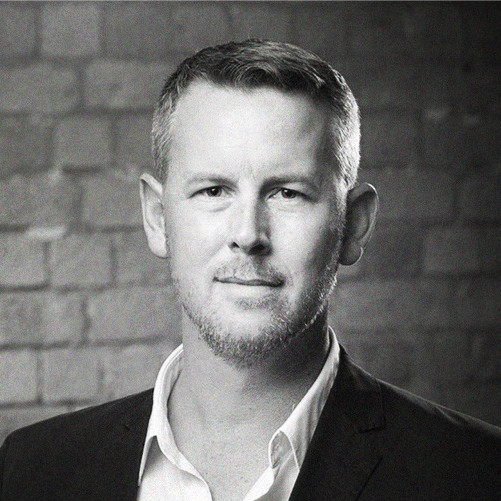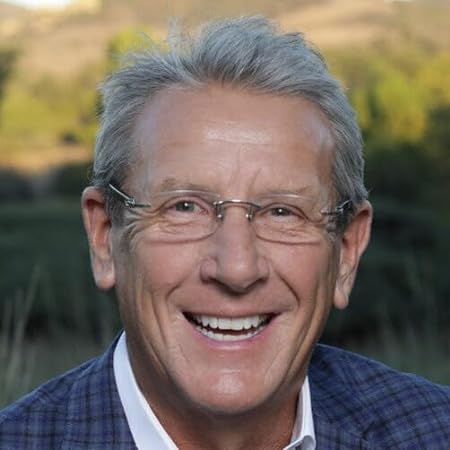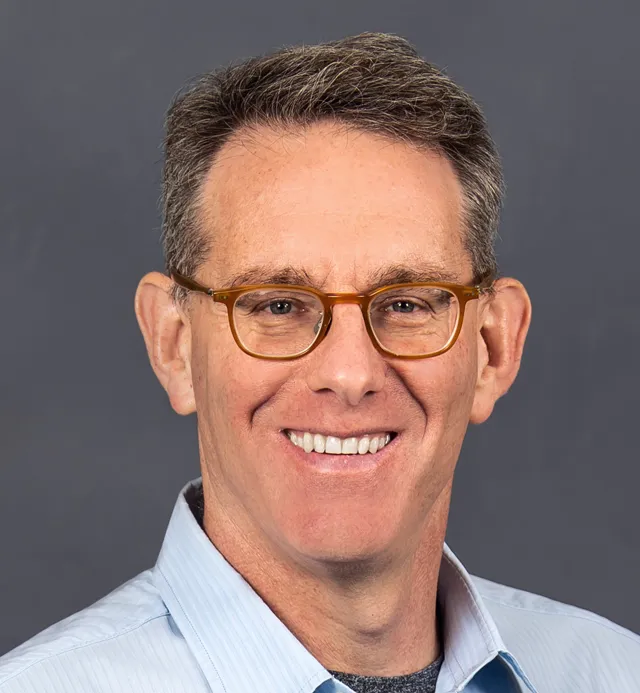
Paul Pritchard is the Group CEO of Overdose, a leading high-growth digital commerce agency operating across nine countries.
Paul stands as a luminary in the realm of digital leadership, leveraging extensive expertise to catalyze business growth within an interconnected landscape. With a proven track record spanning numerous industries, Paul specializes in guiding enterprises toward embracing technology and leveraging the internet to craft innovative customer experiences.
Key Takeaways
(00:00-03:41) The Evolution of Commerce
(03:41-07:40) Lessons learned
(07:40-11:24) Remote Work and Global Brands
(11:24-27:11) Technical Tools
(27:11-39:57) Keeping the Humanity in a Digital World
(37:34-53:42) Ownership Working Culture
📱 Apple Podcasts | 🎧 Spotify | 🔗 iHeart
From Startup
to Global Impact
On this episode of Experience-Focused Leaders, we're joined by Paul Pritchard, the Group CEO of Overdose, a testament to global ambition and digital expertise. From its New Zealand origins, Overdose has rapidly grown into an independent commerce consultancy with a team of over 500 spanning nine countries, supporting a portfolio of well-known brands.
1. The Evolution of Commerce
Paul Pritchard is the Group CEO of Overdose, a globally operating independent commerce consultancy founded in New Zealand with a team exceeding 500 across nine countries, supporting numerous well-known brands. His career trajectory began nearly 20 years ago in graphic design for print, where he honed his craft before recognizing the burgeoning shift towards digital. Driven by curiosity and a desire to understand and leverage emerging technologies like the internet and mobile, particularly the advent of the iPhone, he transitioned into the digital space. This forward-thinking approach and appetite for innovation have been central to his leadership journey.
Seven years ago, Pritchard co-founded Overdose, starting as a small operation assisting a merchant in New Zealand navigate the online commerce landscape. This quickly scaled, building a development resource with long-term collaborators from Ukraine. Under his leadership, Overdose has rapidly evolved into a respected global commerce consultancy with a strong ambition for continued expansion and impact in the industry. His journey from a graphic designer to Group CEO underscores a career defined by adaptability, a keen interest in future trends, and a passion for helping businesses succeed in the evolving digital commerce environment.
All of these exciting things have happened throughout my career, and I guess to get from point A as a graphic designer to point B, which is today as a Group CEO of an amazing company with a group of amazing people, the journey was really dictated by an appetite and curiosity about what's next. — Paul Pritchard
2. Remote Work and Global Brands
Paul Pritchard addresses the challenges of managing a globally distributed team, particularly between New Zealand and Ukraine, by emphasizing a human-centric approach in all interactions with staff, clients, and partners. This focus on the individual behind the logo fosters efficient communication and a clear understanding of priorities. Overdose supports a diverse portfolio of clients, including global brands like Patagonia and Karl Lagerfeld, as well as leading mid-market merchants across various international regions, who trust them with their digital commerce strategies and asset development. Pritchard attributes Overdose's rapid growth to a deep interest in their clients' businesses, which fuels enthusiasm within their team, and the crucial early support from their talented team in Ukraine. He underscores the importance of leveraging global talent and empowering them to excel as key drivers of their success.
If you go back to that, whether they're your staff, clients, or partners, if you treat people like people, and you see the human being behind the logo and computer screen, you tend to get to the point of what's important a lot faster. — Paul Pritchard
3. Technical Tools
Paul Pritchard highlights the limitations of purely digital interactions, noting the lack of spontaneous creativity compared to in-person encounters. While Overdose utilizes tools like Google Suite and Slack for connectivity and rapid communication, fostering a sense of community and safety for questions, Pritchard emphasizes that face-to-face interaction remains invaluable. He notes the challenges of building human connection during periods of remote-only work and the renewed importance of physical presence for deeper engagement and productivity, advocating for a return to this balance.
To humanize digital interactions, Overdose focuses on creating collaborative environments using tools like Google Slides and Sheets, enabling real-time teamwork and transparency. They also prioritize consistent communication and repetition of core values, such as empathy, momentum, and the belief in collective strength. Leadership's role is defined as creating a safe and supportive environment. To foster open feedback, they utilize both visible engagement through all-staff video calls and anonymous internal surveys. Pritchard underscores that continuous effort is required to maintain a human-centric approach in a digital world, but the benefits are significant.
Regarding complex content and consumer practice, Overdose fundamentally rejects a one-size-fits-all approach, instead focusing on helping clients identify and amplify their unique market position. Their core principle is "better to be different and better." They prioritize simplicity in communication to avoid being overwhelmed by complexity, especially when dealing with large B2B clients with intricate technology stacks and organizational structures. Building deep intimacy with clients, understanding their core values and challenges, is crucial. Often, instead of immediately recommending new platforms, Overdose spends time optimizing existing digital assets, drawing an analogy to maximizing the value of a car before purchasing a new one. This strategic approach ensures that any new digital investment is genuinely valuable and aligned with the client's unique needs and goals.
We believe fundamentally in momentum, and momentum is about making decisions fast and understanding the consequences. The longer you wait for perfection, the further away you get from your goal. So, we'd rather move fast, figure out what works, what doesn't, and then adapt. The major key and core are the belief that we're better together than individually, and our team is no one individual. — Paul Pritchard
4. Keeping the Humanity in a Digital World
Paul Pritchard believes that while the emotional connection to a business built from the ground up is significant, advancements in low-code/no-code technologies and AI are making it easier to launch and enhance offerings. He sees AI as a fundamental shift that will augment skillsets, enabling faster, better, and more personalized experiences. The key is to guide both clients and teams on this journey to find their place in this evolving landscape.
Pritchard highlights that the current discourse around AI often focuses on creation, but its power also lies in facilitating the consumption and navigation of complex information, as exemplified by AI-powered content analysis tools. He notes that while AI is already integrated into many tools and offers exciting possibilities for businesses, particularly in extending content assets and enhancing user experiences, there's a risk of homogenization if not consciously directed towards fostering creativity and branching out. Regarding opinions on AI, Pritchard favors the insights of practitioners who demonstrate real-world applications over broad pronouncements. He emphasizes that AI is a diverse set of tools requiring hands-on experimentation and learning, similar to any other technology, and dismisses hype around fleeting trends like the Metaverse, advocating for a practical, tool-based approach to leveraging AI's potential for growth and innovation.
You're not talking necessarily about purely commercial outcomes. You're talking about the presentation of someone's passion, their life. They've built it from the ground up, maybe mortgaged the house 10 years ago, and they've come out of the back end of that, and now they're in a great environment where they've got a proper business, you can't take that away. — Paul Pritchard
5. Ownership Working Culture
Paul Pritchard emphasizes the importance of focusing on personal agency, particularly in bringing enthusiasm to every interaction with staff, clients, and partners. This positive energy is infectious and crucial for building strong relationships and achieving shared goals. He learned the power of controlling one's attitude and effort, especially during challenging times like the situation in Ukraine, where the only recourse was to consistently support their team. This focus on core values and consistent positive action empowers individuals and teams, fostering a culture of engagement and shared understanding.
Pritchard also highlights the constant nature of change in the digital landscape and the need for businesses to embrace discomfort and avoid paralysis by fear of new technologies like AI. Overdose helps clients navigate this complexity by focusing on the next incremental step rather than being overwhelmed by the ultimate destination. This approach allows businesses of all sizes, from those undertaking million-dollar transformations to smaller companies with tight budgets, to gain momentum and extract value from technology investments. By being adaptable, open to opportunities, and maintaining a hunger to learn and grow alongside their clients, Overdose facilitates meaningful progress and long-term success.
Energy, passion, drive, curiosity, and the hunger to learn are infectious, and people get in behind that stuff. They want to be part of that. And if you show that to your clients, you show that hunger to listen and learn about their business, what drives them, what makes their business work and what doesn't, all of a sudden, you can have this really simple conversation with them that are really powerful, simple statements that have a very deep and long tail impact. — Paul Pritchard
Other Episodes

Godard Abel | CEO of G2
S 01 | Ep 6 Where You Go for Software: Reach Your Peak

Dean Stocker | CEO of Alteryx
S 01 | Ep 8 Turning Your Customers Into Your Biggest Champions

Peter Fader | Co-Founder of Theta CLV
S 01 | Ep 10 Turning Your Marketing Into Dollars